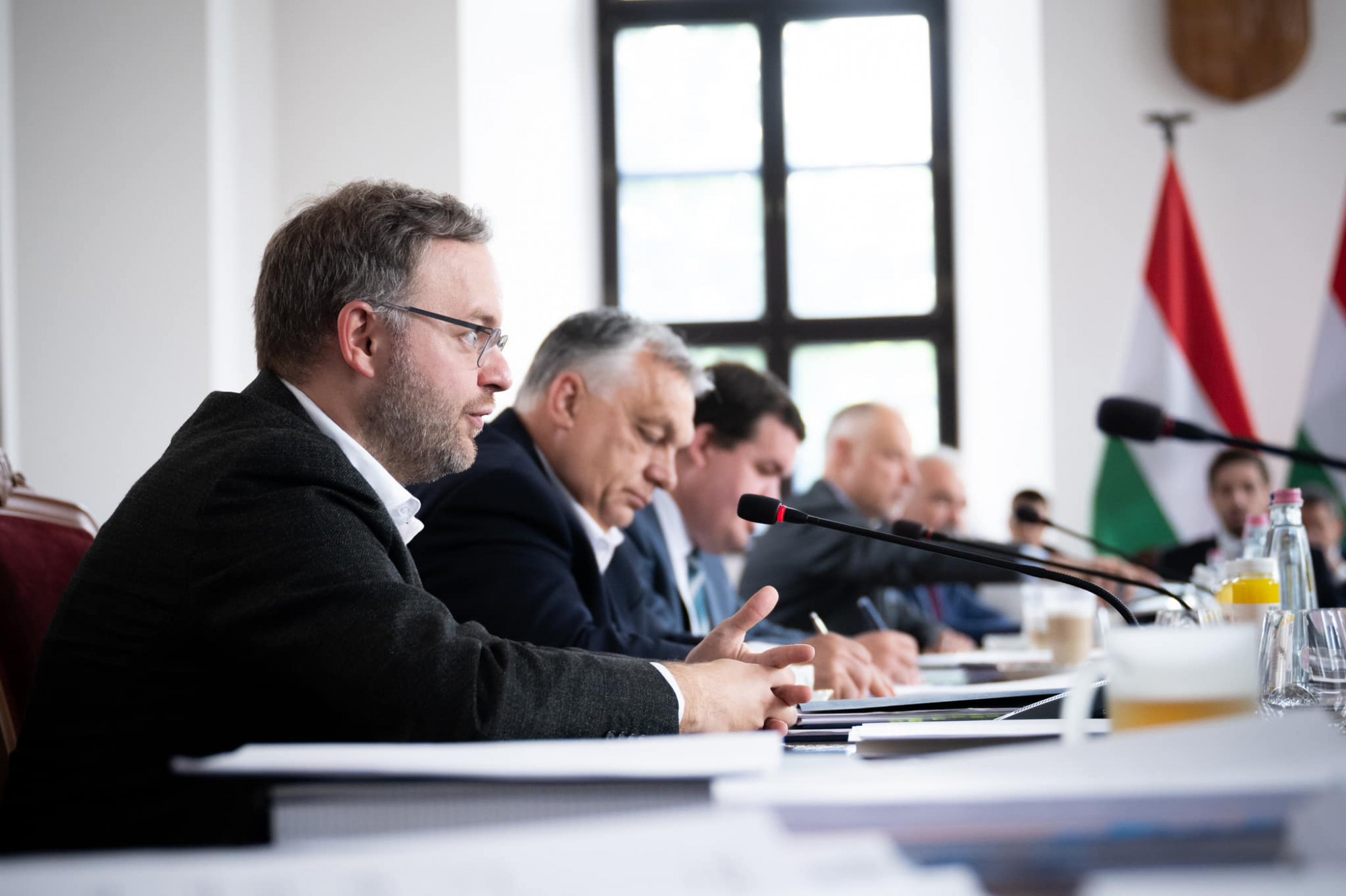Balazs Orban faces backlash over comments on Ukraine war
- Stay updated on the latest news from Hungary by signing up for the free InsightHungary newsletter
Orban's political director suggests Hungary wouldn’t have defended itself against Russian invasion
Balazs Orbán, Viktor Orbán’s political director (no relation to the PM) suggested that Hungary might have responded differently to a Russian invasion than Ukraine has. Orbán made these comments during a podcast on Wednesday, where he accused Ukrainian President Volodymyr Zelensky of making an “irresponsible” choice to defend his nation after Moscow’s invasion.
Drawing a comparison with Hungary’s past, Orbán referenced the suppression of the country’s 1956 anti-Soviet uprising, during which the Red Army crushed the revolt, killing up to 3,000 civilians and leaving large parts of Budapest in ruins. He argued that Hungary had since learned the need to safeguard “precious Hungarian lives” rather than “offering them up” in military defense.
“Every nation has the right to chart its course,” he said. “But given our experience in 1956, we would not have chosen the same path as President Zelenskyy did two and a half years ago, because it was reckless.”
Balazs Orbán's words sparked controversy, and on Thursday he released a video, and a written statement explaining his words." The heroes of 1956 are our national heroes, and their memory is sacred," he wrote on X." However, we cannot equate 1956 with the current Russia-Ukraine war. For the past two and a half years, since the outbreak of the war, we have faced constant pressure from warmongering propaganda, and now they even dare to exploit the legacy of our 1956 heroes."
VSquare: Kremlin-linked influence networks infiltrated Hungarian peace movements to push a pro-Russian narrative
According to investigative outlet VSquare, the Kremlin has repurposed far-right and far-left political networks across Europe under the banner of “peace,” turning the term into a propaganda tool designed to undermine Western solidarity with Ukraine. In Hungary, this strategy appears to have been embraced by the Orbán government, using peace as a political weapon to cast Russia as a victim of Western aggression.
The investigation also reveals how Russian-backed narratives have seeped into Hungary’s peace movements, including the far-left Hungarian Social Forum and the Hungarian Peace Circle—both founded by Endre Simó. Meanwhile, on the far-right, the Our Homeland Movement is said to be promoting an even more extreme pro-Russian stance under the guise of peace advocacy. Despite being on opposite ends of the political spectrum, these groups have come together to organize demonstrations in Hungary, aligning their messaging to reinforce Moscow’s line and undermine European support for Kyiv.
Hungary and Slovakia did not make Putin's blacklist of EU countries
A blacklist, approved by Russian Prime Minister Mikhail Mishustin, names 47 countries and territories that the Kremlin claims are pushing “destructive neoliberal ideologies” in opposition to Russia’s so-called spiritual and moral values. Hungary and Slovakia remain absent from the list, despite all EU countries listed.
According to Russian news agency TASS, the move follows a presidential decree aimed at offering humanitarian support to foreigners who uphold values in line with Moscow’s own. Despite not being named on the blacklist, Hungary was still featured on a separate 2022 list of “unfriendly” states.
More foreigners in the Hungarian labor market than ever before
Every year, more and more people apply for residence permits for more than three months for work, according to data from the National Directorate-General for Aliens Policing, 444 reports.
Last year, more foreigners arrived in Hungary for work purposes than ever before. 106 377, and 2 333 of them for employment, according to the statistics of the Directorate General. In just one year, the number of people arriving to work in the country has jumped by 25 percent, and last year's figure is 78 percent higher than in 2020.
According to the National Employment Service's report on foreign workers, at the end of last year, there were a total of 87 661 work permits in force, a figure that has increased significantly in the last two years, with only 34 000 permits at the end of 2021 and just over 51 000 in 2022. 82% of work permits were held by people from Asia, 9.4% by North and South Americans, 5.3% by non-EU nationals from European countries, and 3.3% by Africans. By nationality, Vietnamese workers with a permit are prominent, followed by Filipinos, Indians, and South Koreans.


